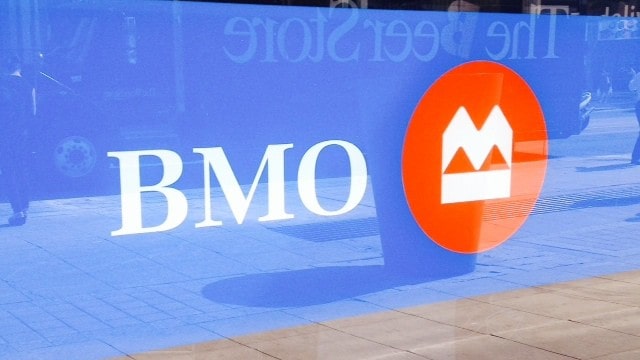Canada’s big banks are often looked to as a source of stable growth and dividend income for investors. As such, when earnings beat analyst expectations, as they did for Bank of Montreal (TSX:BMO)(NYSE:BMO) this most recent quarter, many investors expect dividend increases to follow suit.
BMO reported earnings per share (EPS) of $2.05, earnings which came in 2.5% higher than the average analyst earnings expectation of $2.00 per share, albeit without a corresponding dividend increase. Competitors Royal Bank of Canada (TSX:RY)(NYSE:RY), Canadian Imperial Bank of Commerce (TSX:CM)(NYSE:CM), and Bank of Nova Scotia (TSX:BNS)(NYSE:BNS) all raised their quarterly dividends, citing stronger than expected earnings.
In an ultra-competitive Canadian financials sector, it appears that dividend increases, like mortgage rate increases, tend to move in a synchronized fashion. When one lender moves in a different direction, such a move is typically priced in by the market, favourably or otherwise. On early Tuesday trading, the broader financials sector retreated; BMO saw the largest decline among its peers, posting a decline of more than 2% compared to modest declines of less than 1% for each of the remaining Big Five banks, which many have linked to the reluctance of the Canadian lender to move in sync with its peers in raising its dividend, even marginally.
Perhaps one of the reasons behind the justification for BMO’s management team to maintain the current quarterly distribution of $0.90 per share is due to the fact that the lender’s current yield amounts to 4%, higher than each of its peers except for CIBC, the leader in the Canadian financials sector with a dividend yield of 5%. With a strong, stable yield expected to grow over time, despite the lack of a dividend increase this most recent quarter, investors will have to continue to digest what this move means and if it is representative of how the bank will move forward in the future.
Bottom line
Picking the big Canadian bank that will outperform its peers over time remains a difficult task due to the intricacies of each of the big banks. BMO remains a solid performer, and despite the early sell-off on Tuesday following an earnings beat, I expect this Canadian lender to continue to perform well, reflecting broader positive sentiment surrounding growth in the North American market. That said, the momentum play certainly is not on the side of investors banking on a near-term rally, so buying on a deeper dip may be the way to go in coming trading sessions.
Stay Foolish, my friends.








